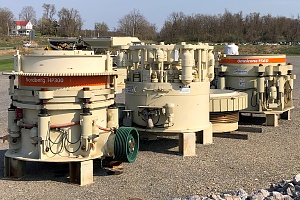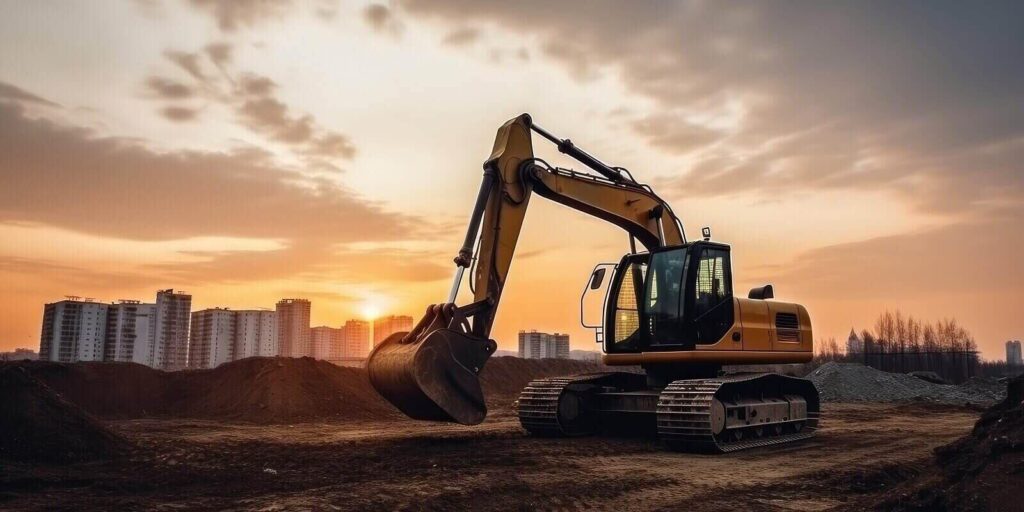Renting heavy-duty equipment provides many benefits over purchasing when you only need machinery for a short-term project. Renting allows you to avoid large capital investments and ongoing ownership costs. However, to ensure your rental experience goes smoothly, there are several key factors you need to consider.
Determine Your Equipment Rental Needs
 The first step is identifying your project requirements and how you plan to utilize the heavy-duty equipment. Consider the type of work you need to accomplish, such as excavating, grading, demolition, materials handling, etc.
The first step is identifying your project requirements and how you plan to utilize the heavy-duty equipment. Consider the type of work you need to accomplish, such as excavating, grading, demolition, materials handling, etc.
This will help determine the function and capabilities you need the rental equipment to have. Also, decide the rental duration you will need the equipment for. Most heavy-duty equipment rentals are charged by the day, week, or month.
Have a project schedule and timeline in mind to estimate the rental period. Allow some buffer time in case the project runs over. Clearly defining your equipment rental needs upfront ensures you get the right machinery.
Research Equipment Options For Rental
With your needs identified, start exploring heavy-duty equipment models and sizes available to rent in your area. Consult manufacturer websites and rental company inventories to compare specifications of different excavators, loaders, cranes, and other heavy machinery.
Consider the operating weight, lift capacity, digging depth, reach, and other key metrics based on your intended use. Larger equipment can provide more power and productivity but may be overkill for smaller job sites. Select equipment well-matched to the scale of your project.
Evaluate Rental Costs
Now that you’ve identified the type of heavy equipment you need, compare rental rates offered by different providers in your region. Rental costs will vary significantly depending on the machine size, capabilities, and rental term.
Crunch the numbers to determine projected total rental fees based on the duration you expect to need the equipment. Get quotes ahead of time so rental costs are accurately budgeted for the project.
Factor in any transportation, delivery, pickup, or maintenance fees. Ask about fuel policies – you may need to provide fuel or return the equipment with a full tank. Understanding all pricing details allows you to minimize rental expenses.
Assess Rental Company Reputation & Reliability
 The heavy-duty equipment rental company you choose is just as important as the specific machine rented. You want to work with a rental provider that has modern, well-maintained machinery and a reputation for reliability.
The heavy-duty equipment rental company you choose is just as important as the specific machine rented. You want to work with a rental provider that has modern, well-maintained machinery and a reputation for reliability.
Research companies in your area and read online reviews. Look for recommendations from colleagues who have rented heavy equipment before. Verify that the rental company thoroughly vets, services, and inspects equipment before renting it out; this helps avoid breakdowns or safety issues.
Also, understand the rental terms and conditions to ensure they work for your needs. For example, know policies on security deposits, damage waivers, cancellations, extensions, and anything else that may impact your rental experience.
Confirm Equipment Availability For The Rental Period
Once you’ve selected a rental provider, discuss equipment availability with them for the dates you need. Fleet inventory fluctuates, so it’s important to reserve the heavy machinery required for your project as far in advance as possible.
Provide the rental company with your expected start date and rental term so they can guarantee availability and coordinate delivery logistics. Avoid disappointment by reserving equipment ahead of time instead of assuming it will be available right when you need it.
Inspect Rental Equipment Condition
Be present during equipment delivery and pickup to inspect its condition closely. Review maintenance logs to ensure regular servicing has been performed. Start up and operate the heavy machinery to verify it is functioning properly before accepting delivery.
Performing your due diligence prevents inheriting pre-existing damage or mechanical issues. Document any defects detected so you are not held responsible upon return. Following a thorough inspection protocol protects you from unfair repair and cleaning fees.
Optimize Rental Logistics
Streamlining rental logistics ensures your project stays efficient. Discuss options for equipment delivery and coordinate drop-off timing. For heavy machinery, rental companies can handle transportation – just ensure site access is suitable.
Avoid productivity lags by organizing required staffing and other resources in advance; have qualified operators ready to start once rental equipment is onsite. Proper planning minimizes rental period waste.
Allow Flexibility In The Rental Agreement
 No matter how carefully you plan, projects often involve surprises and changes. Build in contingency buffers within your schedule to accommodate unexpected delays. Review rental contract terms to understand acceptable reasons for extending your rental.
No matter how carefully you plan, projects often involve surprises and changes. Build in contingency buffers within your schedule to accommodate unexpected delays. Review rental contract terms to understand acceptable reasons for extending your rental.
Communicate any required rental adjustments as soon as possible and get written approval that all changes are acceptable to avoid confusion. By proactively planning for flexibility, you can prevent scrambling if your project timeline shifts.
Rely On Mellott For Hassle-Free Heavy-Duty Equipment Rentals
Renting lets you match heavy-duty equipment capabilities closely to your project’s needs and avoid ownership burdens. While renting is more flexible, a lack of planning can still result in headaches. By clearly defining your requirements, selecting the right rental provider, inspecting equipment thoroughly, and allowing flexibility, you can have a smooth, cost-effective heavy machinery rental experience. If you are confused or uncertain about where to begin with your heavy equipment rental, you can always rely on Mellott.
Our team has extensive experience and expertise in the equipment rental industry and can help you through the process, ensuring you get the specialized machinery your project requires. Contact us today at 888.621.8533 or online for seamless, hassle-free heavy-duty equipment rental.

